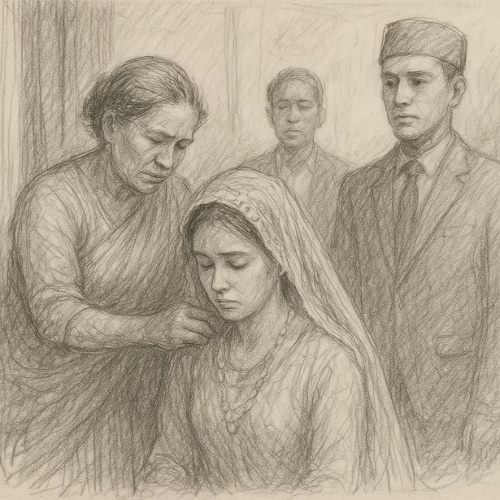In many cultures, the idea of marriage is not a question—it is a destiny. In Vietnam, parents measure a daughter’s worth by how quickly she can secure a husband with a steady job and a house to his name. From the moment a girl hits puberty, the reminders start like a soft drumbeat: “When will you marry?” “Who will take care of you when we’re gone?” “Don’t be too picky, it’s better to settle than to be alone.” In India, this pressure is codified in the practice of arranged marriage. Families hold elaborate ceremonies to “introduce” young men and women as if they are goods in a market. Mothers brag about their sons’ government jobs; fathers boast of their daughters’ fair skin and docile manners. Astrologers are consulted, birth charts compared, all in the name of compatibility. The young people’s opinions are often the last to be considered. Even in Europe and North America, the pressure is more subtle but no less real. Friends ask at dinner parties, “Are you seeing anyone serious?” Grandparents at Christmas slip in gentle hints: “You’re not getting any younger, you know.” In these worlds of soft expectation, singlehood is treated like a personal failing.
In East Asia, the concept of “môn đăng hộ đối” (marrying into a family of equal status) is a social contract that binds not just the couple but two entire bloodlines. A poor girl in Shanghai is told she can’t dream of a man who drives a BMW. A middle-class boy in Seoul who loves a woman working in a bar is warned that “a respectable family doesn’t mix with shame.” These unspoken hierarchies are everywhere. In the Middle East, a young Palestinian man in love with a woman from a wealthier family is reminded that love cannot feed children. In West Africa, tribal and religious divisions dictate who is worthy of marriage, who must stay within the fold to preserve the family’s name. Love becomes a matter of inheritance and calculation. Can he provide? Can she bear children? Will the families approve? The weight of these questions crushes the simple, fragile heart of affection.
For those who do not fit into the mold—gay, lesbian, trans—the rules of marriage become weapons of control. In conservative Islamic families in the Middle East, a son who loves another man is forced to marry a woman to “save face.” In Christian communities in Africa, a lesbian daughter is shamed into a union she does not want, forced to “pray away the sin” through the duties of a wife. In Asia, the stories are whispered. A Vietnamese man who prefers men marries a woman to please his parents. He smiles for the wedding photos, holds her hand at family dinners, and lives a double life in secret bars. A Chinese trans woman is married off as a man to a woman she does not desire, her real identity buried under layers of makeup and family expectations. These marriages are not partnerships—they are performances. They are arranged for the comfort of others: for parents to show off at weddings, for neighbors to stop gossiping, for siblings to relax in the knowledge that their family “did the right thing.”
In so many corners of the world, marriage is an economic transaction as much as a personal one. In India, dowries still exist, despite laws that forbid them. Families fall into debt to marry off daughters, believing a good match is worth the weight of gold. In parts of Africa, the bride price determines not just a woman’s value but her family’s survival. A girl’s body is currency, her future mortgaged to buy a few more years of stability. In Vietnam, families calculate: how much will the groom’s family give? Will they build a house? Will they pay for the wedding feast? A daughter becomes a ledger entry, her worth measured in land and livestock, cash and jewelry.
Behind the photos of smiling brides and grooms, there is often a quiet desperation. In these homes, love is replaced by duty. Couples who do not know each other well enough to share secrets, forced to share a bed and a lifetime. Wives who bear children for men they do not love. Husbands who hide their true hearts behind polite conversation. And in the spaces where true love might have grown, there is only the chill of compromise. No poems written in the dark, no hands trembling with anticipation, no laughter that feels like flight. Only the daily grind of survival, the endless performance of a role never chosen.
When love is a transaction, the cost is not just the heart—it is the soul. These marriages leave a residue of loneliness in their children, a generational inheritance of silence and compromise. A boy grows up watching his parents sleep in separate beds, learning that marriage is a contract, not a promise. A girl learns that her dreams are less important than her family’s pride. Yet even in these arranged unions, the human heart is stubborn. Sometimes love blooms in the cracks—an unexpected kindness, a shared glance that means more than the wedding vows ever did. But for too many, the transaction never ends. It is a debt carried for a lifetime, a wound that never quite heals. In the end, the question lingers: if marriage is a transaction, who truly owns the heart?



হাই, আমি আপনার মূল্য জানতে চেয়েছিলাম.